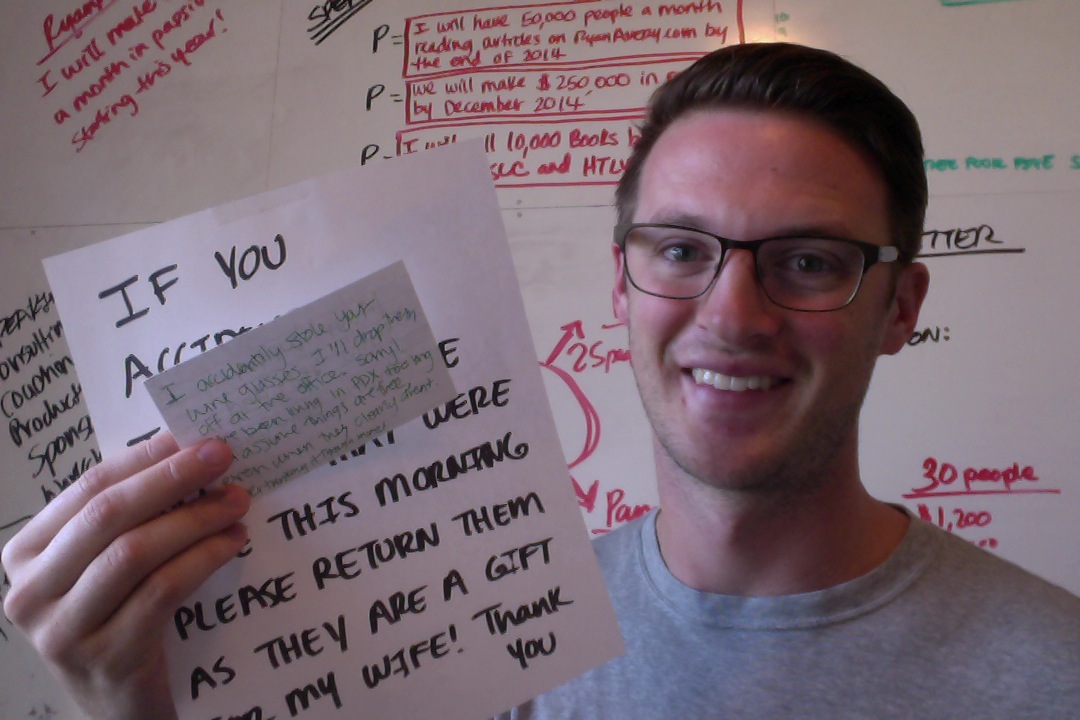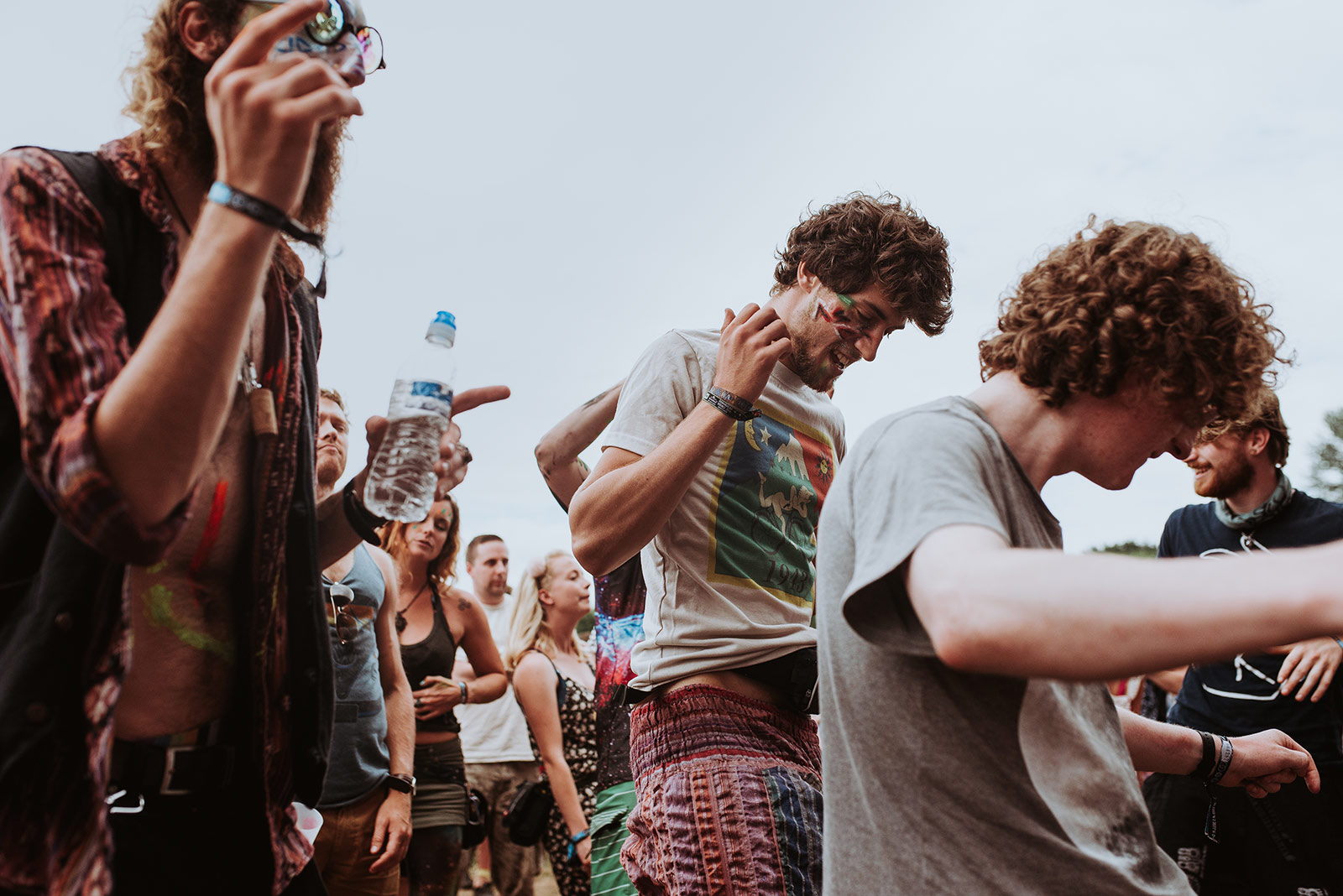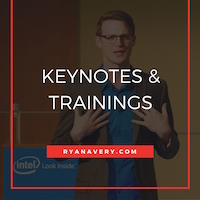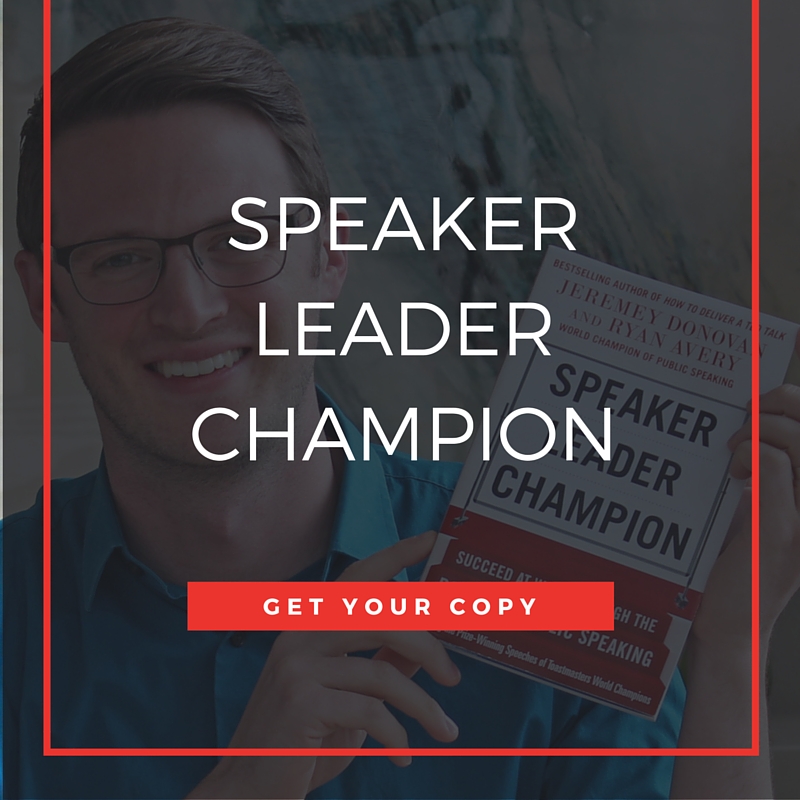Event Coordinators and Meeting Planners: Schedule a Call // Contact Information // Press Kit // 2016 Event Schedule // One Pager // Videos // Articles // Bio // FAQ // Vistage // Head-shots // Pre-Questionnaire // Introductions // Trainings // Testimonials // Meeting Planner Promise
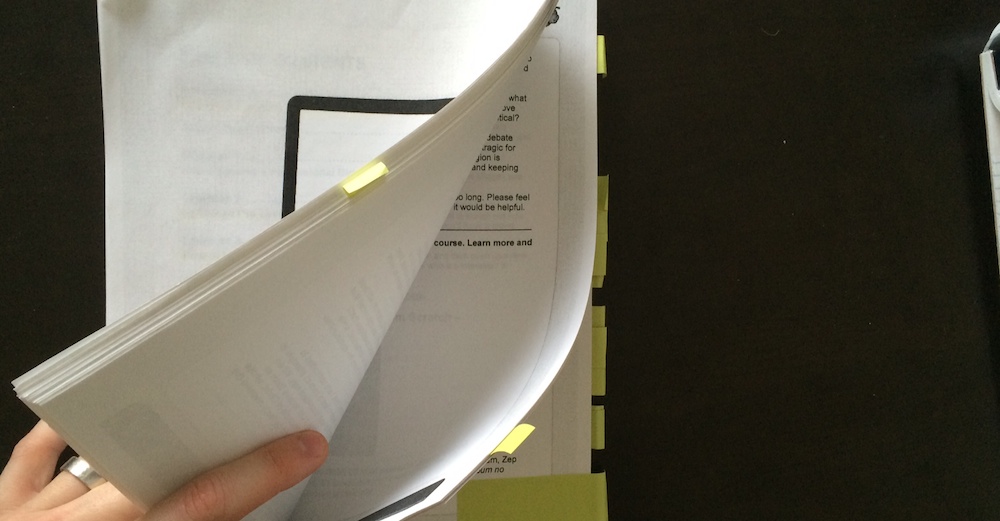
Starting out I wasn’t getting the results I wanted nor the revenue a full-time speaker really needed to make ends meet. I had proposals in the hands of the right people, but nothing was popping up. I knew my content was valuable to professionals, but those who were buying weren’t biting.
I had to be doing something wrong when writing or delivering proposals to potential clients.
I dove in. I asked questions. I researched, read, wrote and re-wrote my proposals. After weeks of formulating a formula, I tested it on my first client. The next week I landed my first BIG five-figure contract.
How did this proposal differ from the others I was sending? It was a formula you can use that I like to call the 5 Ps To a Perfect Proposal:
State Your Position: What is your take on an issue, a problem, or a belief you have? What experience do you have with it? Why does it matter to you?
Identify The Problem: What problem is your target audience facing that they need help solving?
Give a Process: What process will you take them through to fix this problem?
Offer a Product: What do they need to buy in order to fix this? A keynote, a training, a book, a six-week course?
Illustrate the Priority: What happens if they don’t fix this problem? What will their business look like, and why does it need to happen now? Why are you the one they should go with versus someone else?
This simple formula has helped me land larger clients and get more ‘yeses’. This simple to use, simple to read, and simple to understand formula has resonated with several of my clients and created significant income for my business.
So, the next time you write a proposal state your position, identify the problem, give a process, offer a product, and let them know why this is a priority. Hope that helps. Keep using your voice to make a difference! As always…
Dream BIG,
Ryan
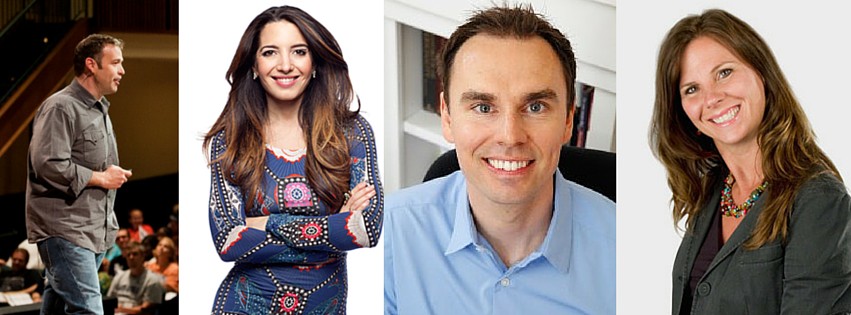
Here is a list of blogs I follow. I read some more than others, but they all provide me with excellent content on how to be a better speaker, leader and champion!
Brendon Burchard: He is one of the most followed personal development trainers of our time, and a global Top 100 Most Followed Public Figure on Facebook. He is a #1 New York Times bestselling author whose books include The Motivation Manifesto, The Charge, The Millionaire Messenger, and Life’s Golden Ticket.
Ted: TED is a nonprofit devoted to spreading ideas, usually in the form of short, powerful talks (18 minutes or less). TED began in 1984 as a conference where Technology, Entertainment and Design converged, and today covers almost all topics — from science to business to global issues — in more than 100 languages. Meanwhile, independently run TEDx events help share ideas in communities around the world.
Six Minutes: They are a public speaking and presentation skills website. They offer regular feature articles on speech writing, delivery techniques, PowerPoint and visuals, and speaker habits. In these articles, you will find tips, insights, and strategies which help you become a confident and effective speaker.
Public Words: Dr. Nick Morgan is one of America’s top communication theorists and coaches. A passionate teacher, he is committed to helping people find clarity in their thinking and ideas – and then delivering them with panache. He has been commissioned by Fortune 50 companies to write for many CEOs and presidents. He has coached people to give Congressional testimony, to appear on the Today Show, and to deliver an unforgettable TED talk.
Seth Godin: He is the author of 18 books that have been bestsellers around the world and have been translated into more than 35 languages. He writes about the post-industrial revolution, the way ideas spread, marketing, quitting, leadership and most of all, changing everything.
Storyline: We believe that your story matters. Storyline is a community of people living a better story. Started by Donald Miller, Storyline is not only a blog but a conference .
Marie TV: Her mission is to to empower you to experience happiness, love, fulfillment and prosperity in every sense of the word.
Check out one of these eight blogs today and start improving the way you communicate and operate! As always…
Dream BIG,
Ryan
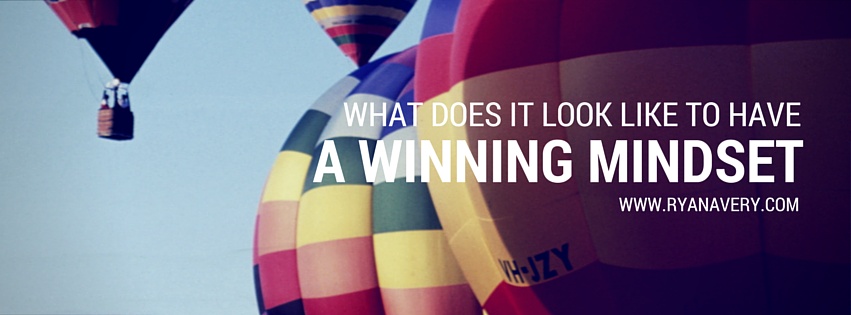
After my last article, I thought I would share some insight on what losers say versus what winners say on various subjects and to see where we land on the loser versus winner mindset scale!
Dreams and Goals
Losers Say: “I have goals. I have them in my head. I don’t share them with anyone because it’s not their business. I think about them every so often, and I am pretty sure I will make them happen this year!”
Winners Say: “I have goals. I have written them down and have shared them with my family and friends to hold me accountable. I look at them everyday! They are clear, obtainable, and I believe I can and will accomplish them.”
Money
Losers Say: “If I had X amount of dollars, my life would be so different!”
Winners Say: “I am going find a way to earn X amount of dollars so I can change my life, give more, and do more for myself, my family and my friends!”
Love
Losers Say: “I wish someone would love me!”
Winners Say: “I can’t find love until I love myself.”
Happiness
Losers Say: “I just want to be happy!”
Winners Say: “What are the things that already make me happy, and what can I do starting today to be happier on a regular basis?”
Family and Friends
Losers Say: “My friends and family take up so much time. They always annoy me. They seem to cause more pain than good.”
Winners Say: “I love my family. I take care of my family. We communicate on a regular basis to avoid misunderstandings.”
Profession
Losers Say: “Ugh, I hate my job!”
Winners Say: “I will do what it takes to get the job of my dreams! I deserve to love what I do!”
Health
Losers Say: “We all die, sometime!”
Winners Say: “The healthier I am, the more I can do!”
So, do you have a loser mindset or a winner mindset? What are the things you need to start telling yourself to gain that championship mindset? As always…
Dream BIG,
Ryan

I want to wish all the Todayers out there a Merry Christmas from the Averys! For those Todayers who don’t celebrate Christmas I hope your holiday season has been amazing and you enjoy spending time with your family and friends, eating way too many cookies and watching enough reruns of A Christmas Story to last all year!
December is a month of reflection and opportunity to give thanks for those we care about most! This week we are spending time with our entire family. We haven’t all been together since Chelsea and I married four years ago, so it really means a lot to us!
With that, I have decided to take a week off and spend it with my family! My next article will pick back up on December 29th and we have an awesome schedule or articles already planned for 2015!
As for the GIVEAWAY: I have wrapped a present I want to send to one of you! If you want it, all you have to do is write in the comments below what you are thankful for this year and why! One random winner will be selected by December 29th and the winner will be posted in the comment section. All I ask is if you are selected you are willing to share with the group what was in the box!
Soak up the time with your family and friends this week. I am looking forward to starting a new year with you in a few days! Merry Christmas, Happy Giveaway Day, and as always…
Dream BIG!
Ryan

This post comes from Stephani Morris from Brooklyn, MI when she asked, “How do you get over the past and focus on the future?”
Whether your past is a good thing or bad, it can hold you back if you dwell on it for too long. I know people who won awesome awards and they never did anything after because they glued themselves to that one accomplishment. I know people who have life stories similar to the ones you see in a Lifetime movie and they stay so bitter because of their past that they can’t move on.
Let your past be stepping stones to your next success – not an anchor in which you think you have to stay (tweet). It’s time to get over the past, no matter how good or bad, and start focusing on the future.
You should be happy you have experienced the good, the bad and the ugly! As a leader, your past helps you relate and connect to more people and it helps you make decisions today that will dictate your future!
Ways you can get over the past and focus on the future:
Set up your vision board!
Get those scissors out, those old magazines you have thrown in the corner and set up a vision board of what you want your life to look like. This will help keep you focused and a visual reminder we can have what we want in life.
Ask yourself if you are being insane?
The definition of insane according to Albert Einstein is “Doing the same thing over and expecting different results.” Are you doing the same things to try and get over the past? Are you doing the same things that are keeping you stuck where you have been? What is something else you can try today to get you focused on the future and remind yourself to let it go (insert Disney theme song here).
Drop the negative people in your life!
You become who you surround yourself by. If you are around negative people, you too will be negative. If you surround yourself with those who are focused on the past… guess what? You too will do the same. It’s time to find people who are ambitious, respect their past but look to find ways to improve their future. Who can you get rid of in your life who is holding you back? Sounds brutal, but you know who they are!
Focus on yourself first!
Sounds selfish? Good, it should! Until you take care of yourself, you can’t take care of anyone else. I see so many people trying to help others yet they forget about their own well-being. What does the flight attendant tell you to do with your oxygen mask if the plane is going down? Put yours on first THEN help those next to you! The world is no good if you are no good so start focusing on yourself and how you can be stronger and get your mind focused on moving forward!
Find three quotes you like!
If you are focused too much on the past, open another tab in your browser and type “inspirational quotes” into Google. Find them, print them out and keep them around your house, car, office or bathroom to constantly remind yourself you have what it takes. Keep your eyes forward and focus on the future.
Three of my favorite quotes to keep me going:
“Whether you think you can, or you can’t, you are right.” – Henry Ford
“Do you want to know who you are? Don’t Ask. Act!” – Thomas Jefferson
” Live as if you were to die tomorrow. Learn as if you were to live forever.” – Mahatma Gandhi
Write down three good things that have come out of your past!
What good things have come from your past? Take three minutes right now and write these down. Tell yourself “parts of my past are good and now it is time to move on to bigger and better things because the world needs more of what I have to offer.” Don’t settle!
Make sure to take time today and if there is something in your past that has been holding you back, good or bad, start with setting up a vision board, finding three quotes you like and write down three good things that have come from your past that you are thankful for. This exercise might take 20 minutes of your day but will get you the boost you need as a leader to be proud of the past and focused on the future.
Thanks for the question Stephani. Let’s all keep using our voice to make a difference and as always…
Dream BIG,
Ryan
* Know someone who could benefit from this article? Please share it with them on your social media or email by clicking on one button bellow!
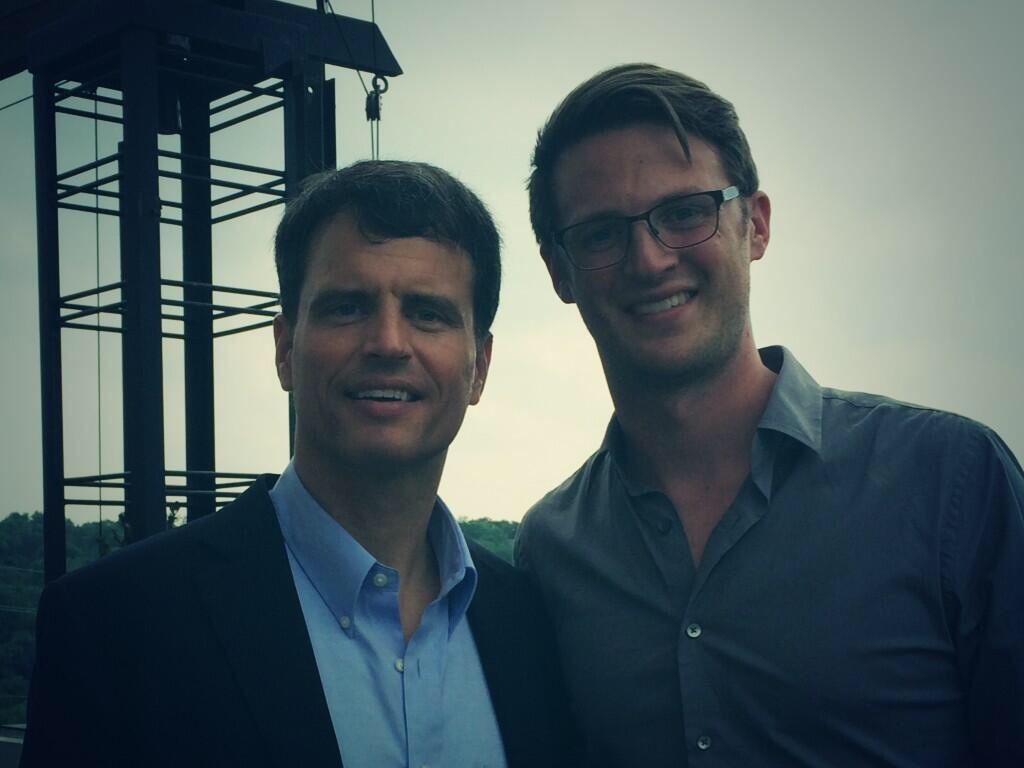
I had the opportunity to have lunch with one of my new favorite authors, Geoffrey Tumlin, while I was speaking in Austin recently. He has a book out called “Stop Speaking, Start Communicating” and I highly recommend you pick it up if you are interested in being more successful in all areas of your life.
He is a military man with a good heart and has dedicated his life to study the art of communication. His new book gives, “…counterintuitive strategies for learning how to interact productively and meaningfully in today’s digital world.” Something we all can improve on!
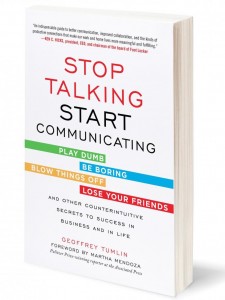 His book is filled with dozens of tips and insightful strategies and here are three ways you should stop talking and start communicating.
His book is filled with dozens of tips and insightful strategies and here are three ways you should stop talking and start communicating.
Lose your friends!
Tumlin explains that, “Important relationship are being trumped by people you barely know!” Just because you hit the “like” button does not mean you are connecting. Humans are social animals. We need to feel connected. Tumlin writes, “Today it is possible to accumulate scores of friends and still feel lonely, be connected to hundreds of people and feel like no one is listening and spend hours at work, sending and responding to countless messages, but still feeling unproductive.” It is because we are focused on technology and not people. “The problem with a more tech-centered view of communication is that it encourages us to expect too much from our device and too little from each other.” You should start communicating more on a human bases so you can build real relationships, feel connected to others and feel like your voice is actually being heard! If you are feeling disconnected from others, lose your “friends” online who don’t add meaning or value to your life and focus on those around you. Tumlin says, “The main reason to prioritize isn’t to squeeze people out of your life; it’s to make sure that the most important people stay in it.”
Stop talking
In my opinion, communication is the foundation to all of your success. To many people are talking rather than effectively communicating! Talking is you getting your voice heard. Communicating is having all parties who are part of the conversation understand what it is you are saying! The better you are at being able to effectively communicate what it is you want, the quicker you will be at receiving and reaching the goals you have for yourself, your company and your family. Think about a relationship you have built over time, that you lost one time due to one or two sentences? If you stop talking and start planning on ways to react to certain situations, you might be able to build better relationships and create lasting ones. Stop talking and don’t focus on what you want to say, focus on what you want to accomplish. The better communicator you are the better relationship you build and the better life you have.
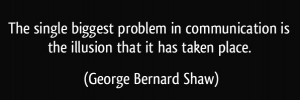 Ignore your (telltale) heart
Ignore your (telltale) heart
When communication problems arise, many of us just want to start talking instead of preparing what we want to say. According to ProFound, last year, productivity losses resulting from miscommunication costs companies $37 billion, or about $26,000 per employee per year, in the US and UK alone. We need to learn strategies and techniques that can help us improve our listening skills, ask the right questions to produce the right answers and minimize miscommunication across multiple communication channels like email, texting, face-to-face and social media. When we are able to effectively communicate to others, we improve productivity, we create clarity and we save money. All strategic communications (including the unexpected ones) benefit from preparation. Take time to think about what you want to say and how you want to say it to minimize conflict, confusion and miscommunication between those you are speaking to.
If you are looking or a book to read, pick up a copy of Stop Talking, Start Communicating and learn how to improve all areas of your life. Connect with Geoffrey and as always…
Dream BIG,
Ryan

I had the opportunity to have lunch with one of my new favorite authors, Geoffrey Tumlin, while I was speaking in Austin recently. He has a book out called “Stop Speaking, Start Communicating” and I highly recommend you pick it up if you are interested in being more successful in all areas of your life.
He is a military man with a good heart and has dedicated his life to study the art of communication. His new book gives, “…counterintuitive strategies for learning how to interact productively and meaningfully in today’s digital world.” Something we all can improve on!
 His book is filled with dozens of tips and insightful strategies and here are three ways you should stop talking and start communicating.
His book is filled with dozens of tips and insightful strategies and here are three ways you should stop talking and start communicating.
Lose your friends!
Tumlin explains that, “Important relationship are being trumped by people you barely know!” Just because you hit the “like” button does not mean you are connecting. Humans are social animals. We need to feel connected. Tumlin writes, “Today it is possible to accumulate scores of friends and still feel lonely, be connected to hundreds of people and feel like no one is listening and spend hours at work, sending and responding to countless messages, but still feeling unproductive.” It is because we are focused on technology and not people. “The problem with a more tech-centered view of communication is that it encourages us to expect too much from our device and too little from each other.” You should start communicating more on a human bases so you can build real relationships, feel connected to others and feel like your voice is actually being heard! If you are feeling disconnected from others, lose your “friends” online who don’t add meaning or value to your life and focus on those around you. Tumlin says, “The main reason to prioritize isn’t to squeeze people out of your life; it’s to make sure that the most important people stay in it.”
Stop talking
In my opinion, communication is the foundation to all of your success. To many people are talking rather than effectively communicating! Talking is you getting your voice heard. Communicating is having all parties who are part of the conversation understand what it is you are saying! The better you are at being able to effectively communicate what it is you want, the quicker you will be at receiving and reaching the goals you have for yourself, your company and your family. Think about a relationship you have built over time, that you lost one time due to one or two sentences? If you stop talking and start planning on ways to react to certain situations, you might be able to build better relationships and create lasting ones. Stop talking and don’t focus on what you want to say, focus on what you want to accomplish. The better communicator you are the better relationship you build and the better life you have.
 Ignore your (telltale) heart
Ignore your (telltale) heart
When communication problems arise, many of us just want to start talking instead of preparing what we want to say. According to ProFound, last year, productivity losses resulting from miscommunication costs companies $37 billion, or about $26,000 per employee per year, in the US and UK alone. We need to learn strategies and techniques that can help us improve our listening skills, ask the right questions to produce the right answers and minimize miscommunication across multiple communication channels like email, texting, face-to-face and social media. When we are able to effectively communicate to others, we improve productivity, we create clarity and we save money. All strategic communications (including the unexpected ones) benefit from preparation. Take time to think about what you want to say and how you want to say it to minimize conflict, confusion and miscommunication between those you are speaking to.
If you are looking or a book to read, pick up a copy of Stop Talking, Start Communicating and learn how to improve all areas of your life. Connect with Geoffrey and as always…
Dream BIG,
Ryan

I had the opportunity to have lunch with one of my new favorite authors, Geoffrey Tumlin, while I was speaking in Austin recently. He has a book out called “Stop Speaking, Start Communicating” and I highly recommend you pick it up if you are interested in being more successful in all areas of your life.
He is a military man with a good heart and has dedicated his life to study the art of communication. His new book gives, “…counterintuitive strategies for learning how to interact productively and meaningfully in today’s digital world.” Something we all can improve on!
 His book is filled with dozens of tips and insightful strategies and here are three ways you should stop talking and start communicating.
His book is filled with dozens of tips and insightful strategies and here are three ways you should stop talking and start communicating.
Lose your friends!
Tumlin explains that, “Important relationship are being trumped by people you barely know!” Just because you hit the “like” button does not mean you are connecting. Humans are social animals. We need to feel connected. Tumlin writes, “Today it is possible to accumulate scores of friends and still feel lonely, be connected to hundreds of people and feel like no one is listening and spend hours at work, sending and responding to countless messages, but still feeling unproductive.” It is because we are focused on technology and not people. “The problem with a more tech-centered view of communication is that it encourages us to expect too much from our device and too little from each other.” You should start communicating more on a human bases so you can build real relationships, feel connected to others and feel like your voice is actually being heard! If you are feeling disconnected from others, lose your “friends” online who don’t add meaning or value to your life and focus on those around you. Tumlin says, “The main reason to prioritize isn’t to squeeze people out of your life; it’s to make sure that the most important people stay in it.”
Stop talking
In my opinion, communication is the foundation to all of your success. To many people are talking rather than effectively communicating! Talking is you getting your voice heard. Communicating is having all parties who are part of the conversation understand what it is you are saying! The better you are at being able to effectively communicate what it is you want, the quicker you will be at receiving and reaching the goals you have for yourself, your company and your family. Think about a relationship you have built over time, that you lost one time due to one or two sentences? If you stop talking and start planning on ways to react to certain situations, you might be able to build better relationships and create lasting ones. Stop talking and don’t focus on what you want to say, focus on what you want to accomplish. The better communicator you are the better relationship you build and the better life you have.
 Ignore your (telltale) heart
Ignore your (telltale) heart
When communication problems arise, many of us just want to start talking instead of preparing what we want to say. According to ProFound, last year, productivity losses resulting from miscommunication costs companies $37 billion, or about $26,000 per employee per year, in the US and UK alone. We need to learn strategies and techniques that can help us improve our listening skills, ask the right questions to produce the right answers and minimize miscommunication across multiple communication channels like email, texting, face-to-face and social media. When we are able to effectively communicate to others, we improve productivity, we create clarity and we save money. All strategic communications (including the unexpected ones) benefit from preparation. Take time to think about what you want to say and how you want to say it to minimize conflict, confusion and miscommunication between those you are speaking to.
If you are looking or a book to read, pick up a copy of Stop Talking, Start Communicating and learn how to improve all areas of your life. Connect with Geoffrey and as always…
Dream BIG,
Ryan

